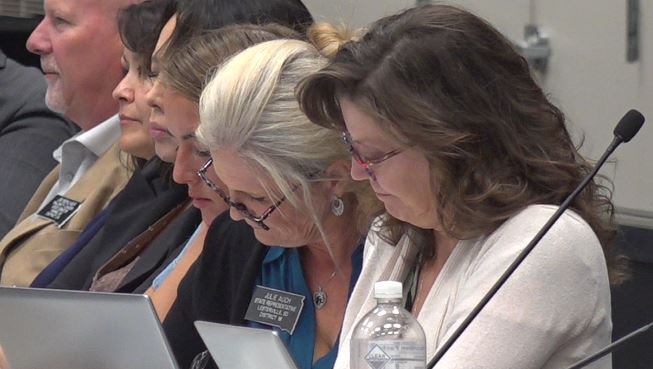South Dakota Property Tax Task Force Addresses Rising Homeowner Concerns
Lawmakers in South Dakota’s Property Tax Task Force recently met at the South Dakota School of Mines and Technology to continue their efforts in addressing the growing concerns of homeowners across the state. The meeting aimed to gather insights from residents and explore potential solutions for the increasing property tax burden.
Public testimony played a significant role in the discussion, with several homeowners sharing their experiences. One such individual was Susan Scheirbeck from Hill City, who emphasized the need for more responsible spending by local governments. She argued that high-value properties, such as McMansions and second or third homes, should be taxed at higher rates compared to those struggling with lower incomes.
Scheirbeck shared her own experience, noting that when she purchased her home in 1990, her annual property taxes were around $300. Over the years, she has seen a steady increase in her tax payments, and now she pays just over $3,700 per year. While she acknowledges that some tax increases are reasonable, she believes the current system is unfair and needs reform.
Senate Majority Whip Randy Deibert, a member of the task force, expressed satisfaction with the attendance of representatives from less populated counties. He pointed out that Perkins County, Hardin County, and Haakon County were well-represented at the meeting, which he considers essential for gathering diverse perspectives. Deibert stressed that these smaller communities often have unique challenges that are not always addressed in discussions dominated by larger population centers.
At the previous task force meeting, lawmakers approved a motion to set a goal of proposing measures that would reduce owner-occupied property taxes by at least half for the next legislative session. However, Deibert was one of only five lawmakers who voted against the motion. His reasoning was based on the timing of the decision, as he felt it was premature to set such ambitious goals during the summer study period.
Deibert explained that he believed the motion should have been introduced later in the process, once more data and detailed plans were available. He also emphasized the importance of setting realistic goals and ensuring that any proposed changes are well thought out before being presented to the public.
The task force is expected to release a comprehensive report with recommended policies by November. This report will likely include various strategies to address the rising property tax issue, including potential reforms to the taxation system and ways to balance the needs of different communities.
As the debate over property taxes continues, the voices of homeowners like Scheirbeck remain central to the conversation. Their input helps shape the direction of policy discussions and ensures that the concerns of everyday residents are heard. With the upcoming report, the task force aims to provide actionable solutions that can help alleviate the financial strain on homeowners while maintaining the necessary funding for local services and infrastructure.







